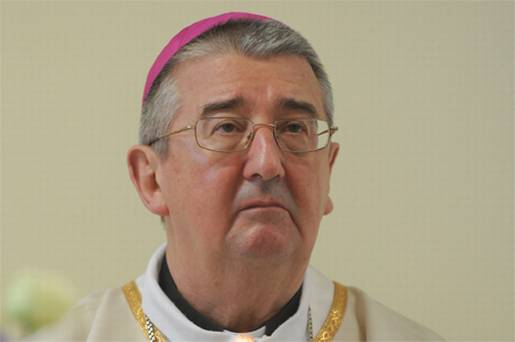
By Sarah Mac Donald - 02 February, 2014
 A new centre for faith and dialogue, which was opened in Dublin on Saturday, has been described as a space which shows that society needs and is enriched by the contribution of faith.
A new centre for faith and dialogue, which was opened in Dublin on Saturday, has been described as a space which shows that society needs and is enriched by the contribution of faith.
Speaking at the formal opening of the Margaret Aylward Centre for Faith and Dialogue in Glasnevin, the Primate of Ireland, Archbishop Diarmuid Martin, described Dublin as a city which is changing and becoming more secular.
He said the centre was a space that would be enriched by the contribution of “men and women of faith who wish to live fruitfully side by side with men and women of differing inspirations in building hope and purpose and confidence in the future of Dublin and its citizens, especially its young people.”
Faith should enrich our reflection, as a society, on the value of life and thus enrich the quality of life of those around us, particularly those who so often fall into the temptations of superficiality and emptiness which can lead to frustration and even despair, the Archbishop told the assembled nuns and co-workers.
He said the newly dedicated space was inserted into the wider space where the spirit of Margaret Aylward is still tangible even in our day in the educational work which has taken place here over many generations.
Margaret Aylward (1810-1889) founded the Sisters of the Holy Faith in the second half of the 19th century.
According to Sr Jacinta Prunty she “pioneered a sophisticated ‘family rearing’ system of care for destitute children, known as St Brigid’s orphanage, which was to provide the model of outdoor care adopted by the Irish workhouses.” She also established a network of schools for the poor.
 In his address, Archbishop Martin described education as “a celebration of human talents and human goodness and truth.”
In his address, Archbishop Martin described education as “a celebration of human talents and human goodness and truth.”
He said the new space would hopefully be a further development of the innovative work of Margaret Aylward which had such an influence for good in this part of Dublin.
“The building reflects the inspiration which gave rise to the project. It is a contribution which springs from the charism of a religious congregation which has set deep roots in this part of Dublin, applying that original charism to a Dublin that is changing.”
“It is to be a place where Christians and believers of other faiths can come together to contribute to that other contemporary fusion which is the emerging civic and religious culture of the Dublin of tomorrow,” the Archbishop added.
He continued, “This building will hopefully become a place where Christians of differing denominations will come together in the realisation that despite our differences there are so many things that unite us and that to fail to recognise those real and existing signs of unity is to betray a real unity in faith and charity.”
However, the Archbishop sounded a note of warning when he underlined that the beautiful and comfortable space for reflection must never become a comfort zone for the like-minded, even for the well-intentioned like-minded.
HE said Pope Francis continually reminds us that the place of the Church is in the peripheries of society, not just the geographical or economical peripheries, but in the profound peripheries of alienation and hopelessness and search for meaning and purpose among the men and women of our time.
“The Church can never be just an inward-looking society, preoccupied by its own challenges. The more the Church becomes over concerned by its internal challenges the more it will actually become more inward looking and never the out-going reflection of the challenging message of Jesus who cares.”
“May it be a place of encounter and of blessing for many years to come,” he concluded.
For news updates from CatholicIreland.net follow us on Twitter: @CINetNews